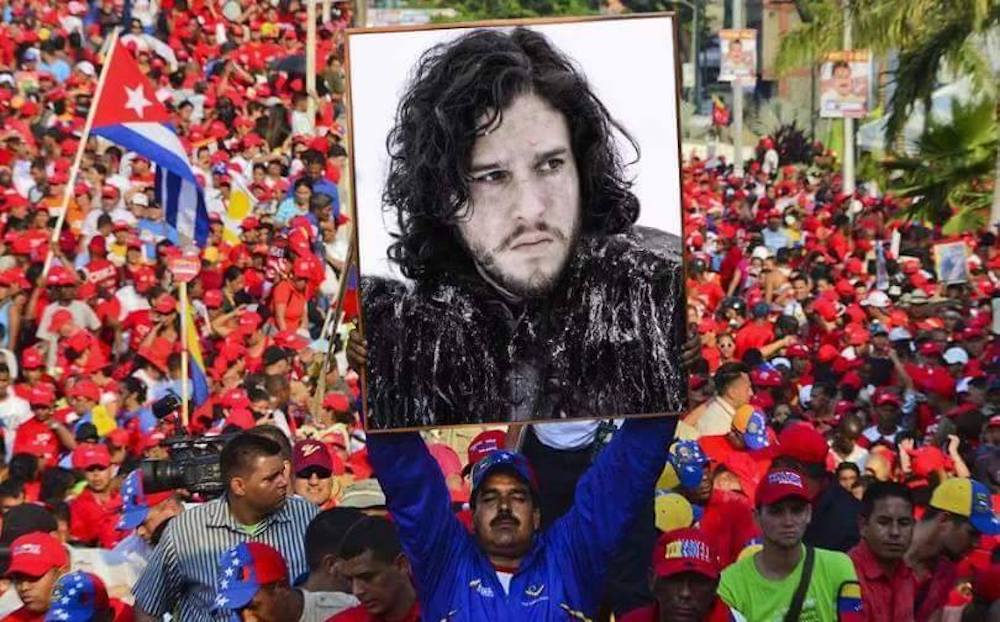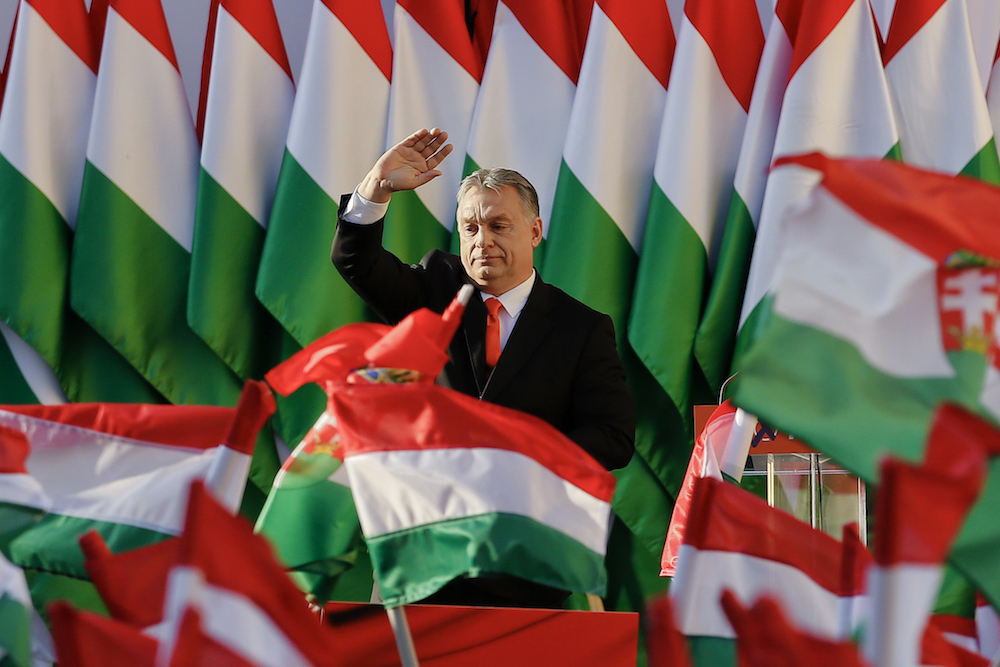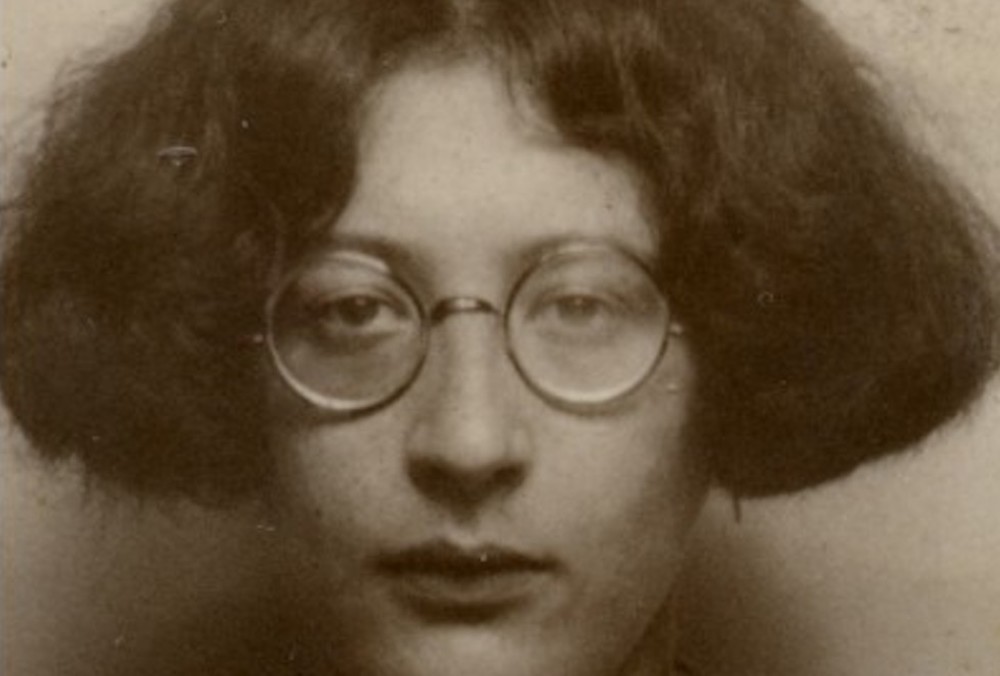
Browsing Facebook and Twitter, it’s easy to find memes comparing the opacity and abuses of the Maduro government to the court intrigue in Game of Thrones. Image courtesy of José González Vargas.
During a tough year, Zócalo’s diverse contributors took on tough questions—puzzling over what it means to be legally dead, contemplating the escapism of television in an imploding Venezuela, exploring the dangers of fashion statements in Tehran, recounting a history-changing lynching, and parsing how humanity might be talking itself into nuclear war.
Picking favorites among the hundreds of essays we publish each year is not easy, in part because of their sheer variety. Grounded in many different ideas and questions, Zócalo essays zig and zag across time, place, topic, and format.
The essays we selected below represent the best of Zócalo’s mix of the smart, the surprising, and the truly haunting.
The Play I Had to Write About the Murder That Haunted Me
Playwright and actress LeKethia Dalcoe recounts the challenge of turning the brutal 1918 lynching of Mary Turner, who was eight months pregnant, into a play, A Small Oak Tree Runs Red.
How Movies and TV Are Helping Venezuelans Negotiate Their Country’s Collapse
Journalist José González Vargas, writing from Venezuela, describes how his fellow citizens consume TV shows and films that put into words and images the thoughts that they cannot express.
Why an American Woman Who Killed Indians Became Memorialized as the First Female Public Statue
University of Northern Iowa historian Barbara Cutter unravels the story of how Hannah Dunston, a 17th century English colonist known for her violence, became an American heroine memorialized in statues in the 19th century.
Why Samoans Are So Overrepresented in the NFL
University of Pittsburgh historian Rob Ruck explores how a sugar plantation and a Mormon temple turned the high schools on Oahu’s North Shore into a training ground for generations of Samoan-American football players.

Hungarian Prime Minister Viktor Orbán at a campaign rally in April 2018, shortly before winning his fourth term since 1998. Photo by Darko Vojinovic/Associated Press.
Why the ‘New Nationalism’ Can Only Flourish in Conflict
UCLA historian and political scientist Anthony Pagden explains why, in contrast to previous eras of nationalism that created new international orders of nation-states, today’s nationalism seeks to destroy the international order altogether.
How Iranian Women Turn “Pious Fashion” Into Under-the-Radar Dissent
Northeastern University religious ethicist Elizabeth Bucar tackles how Iranian women, who comply with the law if not the spirit of restrictions on dress, are challenging the state’s power to define female morality.
Why Legislators and Doctors Don’t Always Agree on the Definition of Death
NYU neurologist Ariane Lewis explains how an inconsistent patchwork of laws that define death has made it possible to be dead in one state but not in another.
We Can Thank New York City for Trump
Mitchell L. Moss, an NYU urban planning scholar who grew up in Queens, demonstrates how Donald Trump’s success in American politics was a product of his failures in New York City.
The Enslaved Chefs Who Invented Southern Hospitality
Kelley Fanto Deetz, an education and programming director at Stratford Hall, recounts how some of the most influential cooks in the South, including the first White House chef, were enslaved.

An undated photograph of French philosopher Simone Weil. Courtesy of Wikimedia Commons.
Why One of France’s ‘Most Subversive’ Philosophers Chose to Work in a Factory
University of Houston historian Robert Zaretsky analyzes how French philosopher Simone Weil developed a deeper understanding of her society’s hierarchies and inequities by taking a job on an assembly line.
Were Empires Better Than Nation-States at Managing Diversity?
University of Virginia sociologist Krishan Kumar argues that empires, as part of strategies to limit resentment and resistance among the peoples they ruled, became leaders in preserving local cultures, propping up indigenous institutions, and restoring historic sites.
The Sanitized Rhetoric That Makes Nuclear War More Likely
Paul Carroll, who has devoted his career working to reduce the threats from nuclear weapons and other materials, describes how Americans have adopted and accepted a language for such weapons that is dangerously detached from the reality of what nuclear bombs actually do.
Is Forgiveness the Basis of a Healthy Democracy?
Ramin Jahanbegloo, an Iranian philosopher who directs the Mahatma Gandhi Centre for Peace at Jindal Global University in Delhi, argues that forgiveness is the crucial first step for opening the dialogue and rebuilding the decency necessary for democracy.




Send A Letter To the Editors